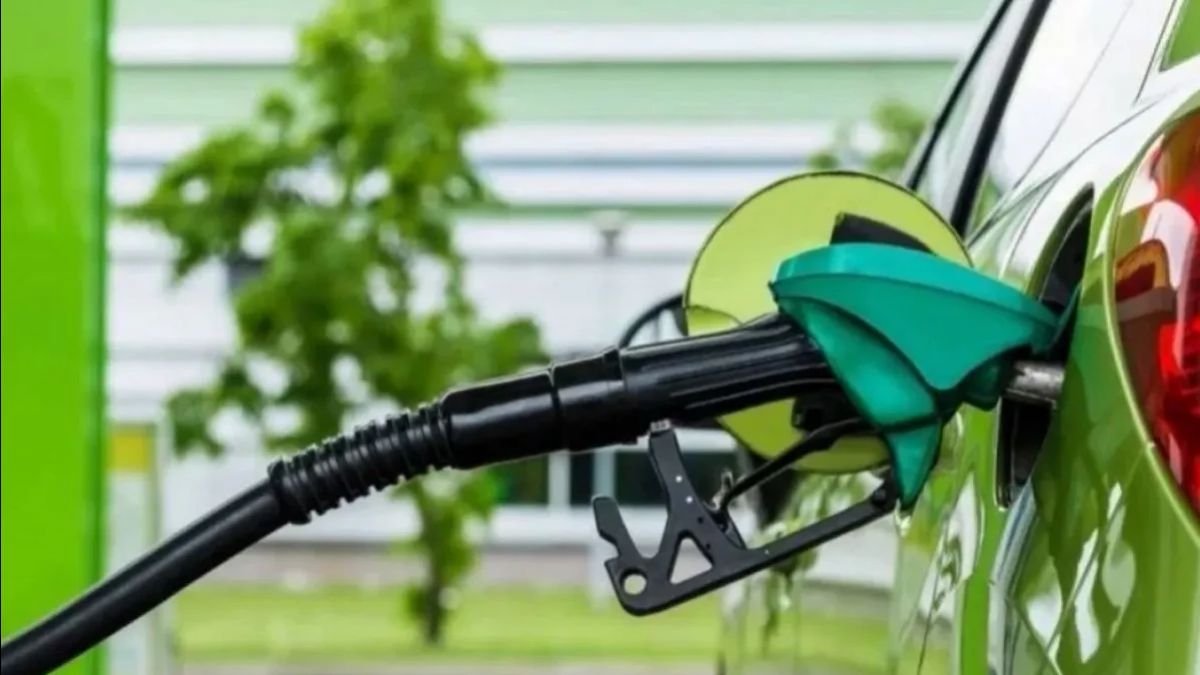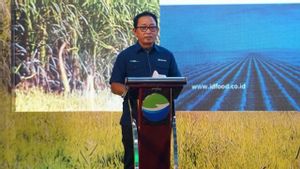JAKARTA - President Director of PTPN III Holding Mohammad Abdul Ghani said that the renewable energy source of bioethenol from sugarcane cane is more efficient than biodiesel from palm oil.
"Among the two green-based energy commodities, biodiesel and bioethenol, it is actually the most efficient bioethenol," said Gani, quoted from ANTARA, Friday, October 27.
In comparison, explained Gani, Indonesia has an area of 16 million hectares of palm oil with an average productivity of 3 tons per hectare.
Of the 3 tons of palm oil per hectare, continued Gani, if processed into biodiesel, it only produces or 2.5 kiloliters of biodiesel.
Meanwhile, on 1 hectare of sugarcane cane land, it can produce 4.5 to 5 kiloliters of ethanol.
"What does it mean? The ability of land to produce ethanol is twice as large as biodiesel," he said.
Therefore, according to Gani, the government should re-establish the new and renewable energy roadmap for Indonesia, one of which is by shifting the use of biodiesel to bioethenol.
"I think Indonesia's new renewable energy roadmap is the most appropriate to shift from biodiesel to ethanol," he said. He also proposed utilizing 2 million hectares of conversion land to be planted with cane because it can produce 10 million kiloliters of ethanol to help meet national fuel needs.
"If there is new land, whether the conversion land from palm oil or from people's rubber is not profitable, just two million hectares can produce 10 million kiloliters," he said.
It is known that the Minister of Energy and Mineral Resources (ESDM) Arifin Tasrif said the government continues to promote the use of bioethenol fuel as an effort to increase national energy security.
He explained, in November 2022, President Joko Widodo has launched a bioethenol program from sugarcane plants in Mojokerto, East Java.
"Then, the blending of bioethenol is also being carried out by PT Pertamina (Persero) through a five percent ethanol mixture with RON 95 gasoline on Pertamax Green 95 products and is currently available at several gas stations in Surabaya and Jakarta," he said in Jakarta, Monday, October 9.
اقرأ أيضا:
To support the sustainability of the bioethenol mandatory in the future, continued Arifin, the government has issued Presidential Regulation Number 40 of 2023 concerning the Acceleration of National Sugar Self-Sufficiency and Provision of Bioethenol as Nabati Fuel (Biofuel).
"The Presidential Decree is encouraged because of limited sugar cane raw materials and is also hit by food problems, so that the government encourages the development of vegetable fuels based on local potential and will create new markets for local agricultural products," said Arifin.
The English, Chinese, Japanese, Arabic, and French versions are automatically generated by the AI. So there may still be inaccuracies in translating, please always see Indonesian as our main language. (system supported by DigitalSiber.id)

















